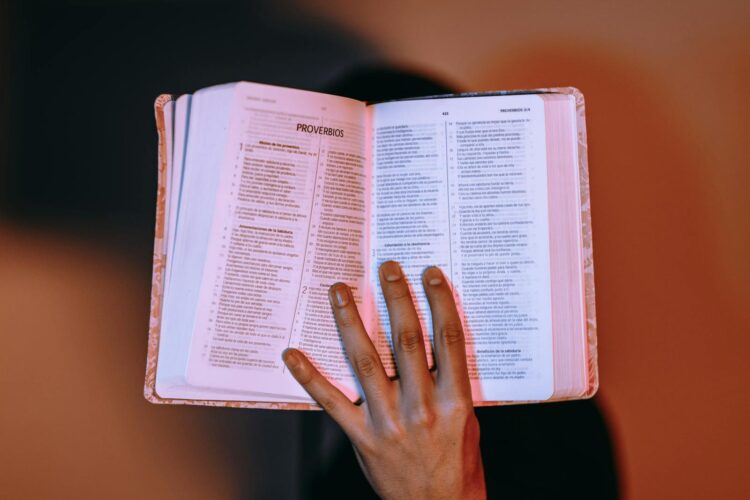
The Bible is one of the most quoted books in the world, but a lot of verses are pulled out of context or used in ways that change their meaning. Some of these lines sound comforting, others strict, but many are misunderstood when you look at what they actually meant at the time. Here are 15 that people often get wrong.
God Helps Those Who Help Themselves

This line gets tossed around like it’s straight from the Bible, but it’s not in there at all. People use it to mean you have to work hard before God steps in. The actual message throughout Scripture is that God helps the weak, the poor, and the ones who can’t help themselves. It’s a reminder of grace, not self-reliance.
Money Is the Root of All Evil

This one is quoted constantly, but it cuts out a very important word. The verse actually says the love of money is the root of all kinds of evil. It’s not about money itself being bad. Instead, it warns against greed and obsession. Money can be used for good, but when it becomes your main love, that’s where the harm starts.
Judge Not, Lest You Be Judged

Many people take this to mean you can’t call out wrong behaviour at all. In context, Jesus was warning against being hypocritical, judging others harshly while ignoring one’s own faults. The idea is to look at yourself first and approach others with humility. It’s not a ban on discernment, it’s a warning about being self-righteous.
I Can Do All Things Through Christ

This verse from Philippians is often used as a motivational slogan, like God gives you the power to crush any goal. The original context is about contentment. Paul was saying he could endure both good times and hard times because of Christ’s strength. It’s less about winning at everything and more about being steady no matter what life throws at you.
Eye for an Eye

People use this line to justify revenge, but the verse was actually about setting limits on punishment. It meant that justice should be fair and proportional, not cruel or excessive. Instead of letting people go wild with payback, the law tried to keep things balanced. Jesus later expanded it even further, teaching forgiveness over retaliation.
Spare the Rod, Spoil the Child

This phrase isn’t word-for-word from the Bible, but people quote it as if it is. Proverbs does talk about using the “rod,” but in Hebrew culture, the rod symbolised guidance, like a shepherd guiding sheep. It wasn’t just about spanking. The larger point was that children need direction and discipline, not neglect. The meaning is much bigger than punishment.
The Truth Will Set You Free

It sounds like a slogan for honesty, but in context, Jesus was talking about himself and his teaching. The “truth” wasn’t just general truth-telling. It was the message of God’s word and the freedom that comes from living in it. While honesty is important, this verse points to a deeper kind of freedom rooted in faith.
Where Two or Three Are Gathered

This verse is often quoted to mean God only shows up when at least two people pray together. In reality, it’s about church discipline and God being present when decisions are made in his name. God doesn’t need a group to listen to you. The point is that his authority is with believers when they seek him in unity.
God Won’t Give You More Than You Can Handle

This is a favourite comfort phrase, but it’s not exactly what the Bible says. The verse people point to actually talks about temptation, saying God won’t let you be tempted beyond what you can bear without a way out. Life can absolutely feel like more than you can handle. The message is that God is with you, not that everything will be easy.
Pride Comes Before the Fall

Most people shorten this verse, but the original wording is “Pride goes before destruction, and a haughty spirit before a fall.” It’s not just about messing up after you brag. It’s about the dangers of arrogance and acting like you don’t need God. The warning is much more about heart attitude than about karma catching up with you.
Ask and You Shall Receive

This verse gets treated like a blank check for prayer requests, as if God hands out whatever you ask for. The context is about asking in line with God’s will. It’s about trust and persistence, not instant wishes being granted. The bigger idea is that God listens, but he answers in the way that’s best, not always the way you expect.
Be Still and Know That I Am God

This one gets used to encourage quiet meditation, and while that’s fine, the original verse was more about trust in chaos. It comes from a psalm about nations at war. “Be still” meant stop fighting, stop stressing, and recognise God’s power. It’s less about calm moments and more about letting God be in control when life feels shaky.
Faith Without Works Is Dead

Some think this means good deeds earn salvation, but the bigger point is that genuine faith naturally produces action. James was stressing that if someone claims belief but never shows love or service, the faith isn’t real. Works don’t save you, but true faith shows itself through them. It’s the evidence, not the entry ticket.
The Meek Shall Inherit the Earth

Meek gets misunderstood as weak or timid. In the original language, it meant gentle strength, someone who’s humble and self-controlled. Jesus was saying that people who don’t rely on force or pride will receive God’s blessing. It’s not about being a pushover but more about strength under control. The word carries a much richer meaning than people assume today.
All Things Work Together for Good

This verse gets quoted to people going through tragedy, sometimes in a way that feels very dismissive. The full meaning is that God works all things together for the good of those who love him. It’s not saying everything that happens is good. It’s about the long view, that even painful moments can be used in a bigger plan.

